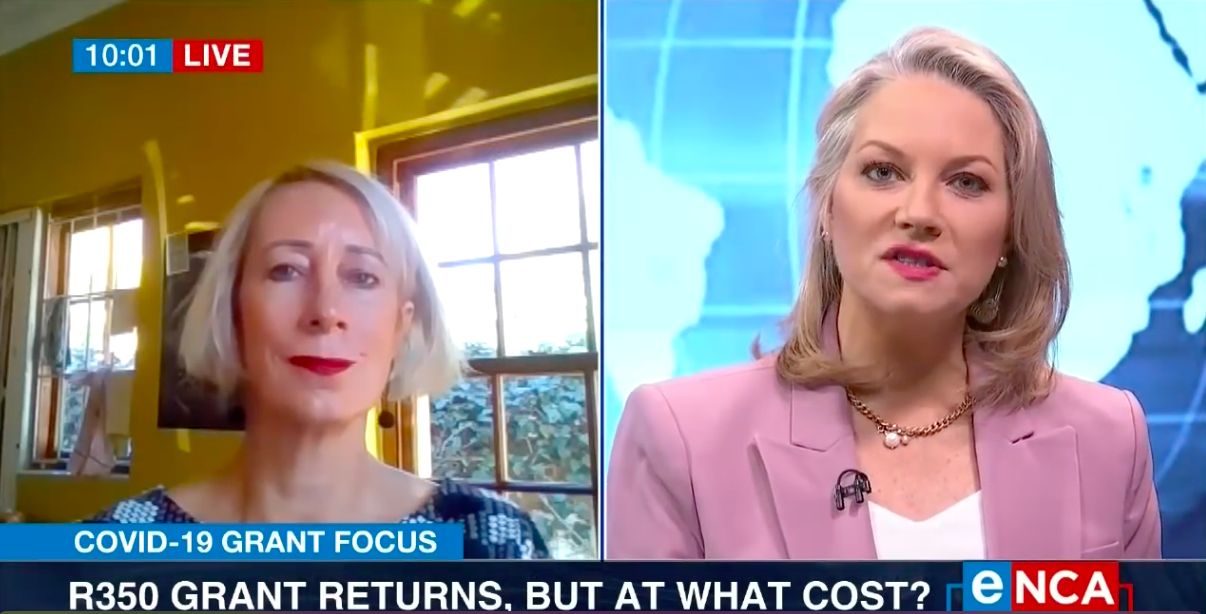eNCA: R350 Social Relief of Distress Grant, discussion with Isobel Frye


“Recognising the magnitude of this response, we hoped it would have been seamless.” – Isobel Frye, Director of the Studies in Poverty and Inequality Institute adds when interviewed on eNCA about the current SRD (Social relief of Distress) grant being reinstated by government. President Ramaphosa announced that this monthly grant will last until the end of March 2022.
The Social relief of Distress grant return is long overdue, but the implementation of such a grant goes to show that state is listening. Women who take care of children were initially excluded from the SRD grant, the Caregivers grant can now be coupled with the SRD grant. President Ramaphosa highlighted that more people now qualify for the Social Relief of Distress grant.
Isobel makes mention that this is the largest global rescue program that is available to help people who are not in the position to help themselves.
“We are not just looking for humanitarian response longer term economic transformation intervention, the SRD grant is a welcome first step,” – Frye notes.
One of the concerns that the nation has is the funding of a Basic Income Grant, the president has mentioned that SARS returns made the sufficient money to fund the SRD grant. It is important to recognise the distinction between available money for humanitarian reasons and to identify new money through the economic stimuli.
We were in a recession long before Covid-19, steps need to be taken to release idle money.
People whose hunger has become critical have now a bit of relief, the SRD amount of R350 goes almost entirely towards food in the average household, given the devastation to food supply chains recently, we see there will be interventions to bring food into communities.
“There is a constant demand for food.“ – Frye vocalises.
The Department of Social Development gave response to the use of the grant, with the ability to digitalise, people can now use airtime for jobs searching and have access to government programs. The R350 SRD grant is short of the poverty line, but because it is a form of constant payment people can plan for economic recovery.
Source: eNCA